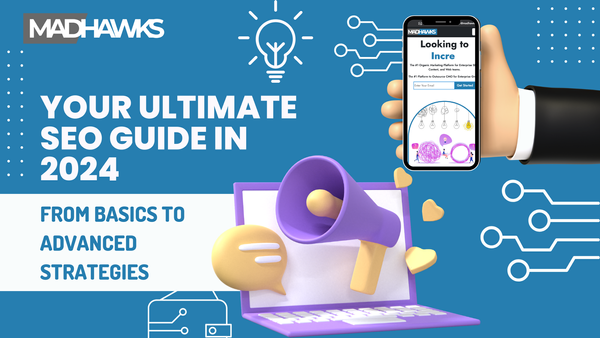The Four Stages of Making Money Every New Professional Must Know

Most of us grow up with a blank slate when it comes to financial education, often leading to misconceptions that trap us in poverty. Many people fall into one of two major misconceptions: believing that extreme effort will yield extraordinary rewards, or fantasizing about a sudden opportunity that will lead to financial freedom. Neither of these paths is effective or likely. The true path to financial success involves gradually upgrading your earning capabilities through four distinct stages.
Stage One: Selling Time and Labor for Money At this stage, you are a cheap cog in the machine, trading your time and labor for a paycheck. This is the most common earning logic we are taught growing up—you need a job to earn an income. However, working for someone else will never make you rich. This is because companies exist to facilitate transactions for those who cannot directly interact with the market. For example, if you are a newly graduated architect with no credibility, no one will hire you to design a building. Instead, a design firm with established credibility will secure the contract and assign the work to you, acting as an intermediary. The salary you receive is just a fraction of what the market pays, filtered through several layers of distribution.
In this role, your best energy and time are consumed by your job, leaving you exhausted and unable to pursue anything else. You become a juggler of tasks, constantly trying to appease your boss and handle work crises, personal issues, and competition. This constant juggling leads to anxiety and burnout. To cope, you may indulge in consumerism, falling into the trap of spending beyond your means, which forces you to continue working to pay off debts.
To escape this trap, you need to climb the corporate ladder to gain a bigger share of the profits or move to a more profitable company. However, this is not a long-term solution, as you remain a replaceable part. Ultimately, to achieve financial freedom, you need to move up the value chain and become the one distributing the profits.
Stage Two: Earning Through Products or Services At this stage, you transition from being a cog to becoming a valuable individual capable of directly interacting with the market. This involves developing two fundamental skills: product creation and marketing. By turning your unique skills into products or services, you can sell them to multiple clients simultaneously, significantly increasing your income.
Naval Ravikant's book, "The Almanack of Naval Ravikant," emphasizes this approach, stating that the fundamental principle of wealth creation is to productize yourself. This means identifying your strengths, creating value for society, and scaling this value. Successful individuals in the tech industry or social media often excel in product development and marketing because they understand market needs and can provide creative solutions.
In this stage, it’s crucial to identify your niche—something you excel at effortlessly, which others struggle to do. This becomes your competitive advantage. When providing products or services, you face a choice: cater to the wealthy, who pay more per transaction, or serve the masses, who pay less but in larger numbers. For beginners, targeting the wealthy is often more practical as they are less price-sensitive and can provide your initial capital.
Stage Three: Earning Through Business Systems At this stage, you become a resource builder, earning through structured business systems. This involves creating and managing a system that generates income, such as a company or a series of products and services that operate semi-independently. By leveraging the efforts of others and automating processes, you can scale your operations and increase profitability.
Stage Four: Earning Through Multiple Business Systems Finally, at this stage, you become an integrator of multiple business systems. This involves overseeing various income-generating systems, ensuring they work together efficiently. By diversifying your income streams and optimizing each system, you achieve financial stability and growth.
In conclusion, to achieve financial success, you must progress through these stages, continuously developing your skills and expanding your influence. Starting with selling your time and labor, you eventually build and manage systems that generate income independently, allowing you to achieve financial freedom and security.
Here's an example: A wealthy client can pay you $10,000 in one go, but an average person might only be able to pay you $10. So, you need 1,000 such clients to make the same amount, right? The challenge lies in the effort and cost to acquire those 1,000 clients. Do you have the capacity for that? Most people starting out don’t. When your personal leverage is limited, it's hard to scale resources. So, in business, it's better to focus on increasing the value and impact of each effort to achieve a breakthrough from zero to one. If you aim for greater wealth, you need to learn to use different business levers to amplify your system. This is the third level we talk about: making money by building a business system.
What is a business system? Simply put, it's starting a company, hiring others to be part of your system, and investing in product development. You'll need to secure funding, manage VC and angel investors, and form partnerships to create market channels for selling your product. If you’re also an influencer, you can help sell your company’s products. With a business system involving personnel, capital, and sales channels, you become an entrepreneur. These aspects correspond to the three crucial business levers: labor, capital, and media.
The first lever, labor, is the oldest in business—essentially hiring lots of people to look like a big boss. This might impress your parents, but labor is the least efficient, being primitive and rough. Think plantations, factories, assembly lines, and Foxconn. To earn more, you need more people, which is costly and complex to manage. Modern management systems arose to handle this, but human factors remain unstable. Today’s AI companies, with a few people, can generate profits that used to require tens of thousands. Labor leverage is becoming outdated as AI replaces many human tasks.
The second lever, capital, has high barriers. Using funds as production materials for higher returns is a common elite and wealthy tactic. If you seek startup funding, you’ll find few succeed—those with prestigious backgrounds or proven market products. This is beyond most people, so we won't delve into it.
The third lever, media or product leverage, is more accessible. Writing code for an app, creating videos, or running a media channel—these have low marginal costs and have created immense wealth in the internet age. This lever has strong amplification effects, akin to capital leverage. In the AI era, more people can develop their applications or use AI to produce media. This allows you to sell your product or service to many people simultaneously, generating income even while you sleep. Compare this with the grind of an overtime job, and the efficiency difference is stark.
In today’s world, everyone should try the third lever, which might be the only way to break free from the typical career path and achieve wealth transition. All you need is creative thinking, expressive skills, and a smartphone. You don’t even need to create products; marketing existing ones can earn you a share. Thus, people fall into two categories: those with leverage and those without, with wealth efficiency differing by thousands of times. To use leverage, you must excel in your field, making the media lever your amplifier, multiplying your expertise. Without standout skills, media leverage can magnify your flaws.
So, improving professional skills at ten times the speed is crucial for media leverage eligibility. Treat media skills as essential, not just leverage. When your professional and media abilities align, the leverage system forms more easily.
To gain wealth, invest and practice early. Every return has a delay effect, and a strong mindset is essential. Ignore ridicule; those people are already on their way out. Ensure your own progress and ignore distractions, focusing on personal development and wealth efficiency for a better life and achieving simple goals. Successful people are highly focused and straightforward, operating multiple business systems for income. As a high-level integrator, you’ll manage multiple systems, ensuring they work together and form a cohesive loop. This is the realm of top entrepreneurs like Buffett, Gates, Musk, and Chinese tech moguls. Their ambitions surpass wealth, aiming at broader, humanity-related goals.
These four stages reveal the true nature of earning and wealth. Each skill node is a target worth striving for, with wealth being a solid checkpoint on the path to happiness and life control.



